Going Green Without the Card—What You Need to Know
Understanding Legal Cannabis Access Without a Medical Card
Cannabis without medical card is now a reality for adults 21 and over in 24 states, Washington D.C., and 2 U.S. territories. Here's what you need to know:
| Cannabis Access Without Medical Card | Key Information |
|---|---|
| Legal Status | Legal in 24 states, D.C., Guam, Northern Mariana Islands |
| Age Requirement | 21+ years old |
| Typical Purchase Limit | 1 ounce flower or 5 grams concentrate |
| Key Difference from Medical | Higher taxes, potentially lower possession limits |
| Federal Status | Still illegal (Schedule I controlled substance) |
Navigating legal cannabis can feel like walking through a constantly shifting maze. As laws evolve across the country, understanding how to access cannabis without medical card requirements has become increasingly important for adults seeking its benefits.
The landscape has changed dramatically over the past decade. What was once only available through medical programs now has a parallel "adult-use" or "recreational" system in nearly half of U.S. states. Each jurisdiction sets its own rules on everything from purchase limits to public consumption, creating a patchwork of regulations that can be confusing to steer.
I'm Max Shemesh, CEO and founder of Aventus8, where we specialize in guiding consumers through the complexities of the legal hemp market, including the nuances of accessing cannabis without medical card requirements in various jurisdictions. My experience has shown that understanding these distinctions is crucial for consumers seeking to make informed, legal purchases.
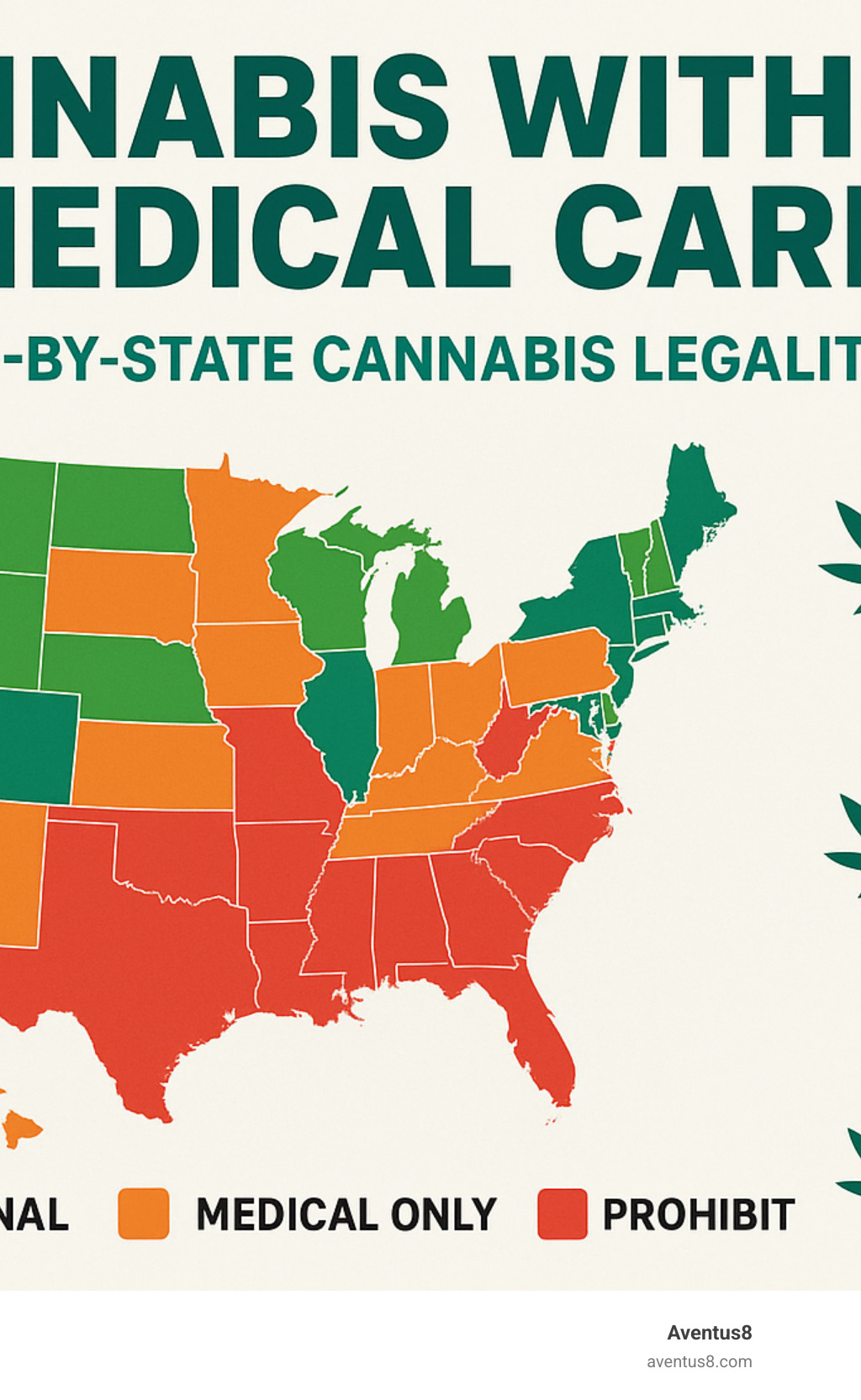
Learn more about Cannabis without medical card: - cannabis - delta 9 - cbd vs thc
Navigating "Cannabis without Medical Card": State-by-State Snapshot
The landscape for cannabis without medical card access looks dramatically different depending on where you are in America. It's like a patchwork quilt of laws that can change when you cross state lines. As of 2024, adults 21 and over can legally purchase cannabis without any medical documentation in 24 states, Washington D.C., and two U.S. territories (Guam and the Northern Mariana Islands).

Which states fully allow Cannabis without medical card?
Walking into a dispensary with just your ID is now possible across nearly half the country. States like Colorado and California pioneered this approach, but they've been joined by many others. The complete list includes Alaska, Arizona, California, Colorado, Connecticut, Illinois, Maine, Maryland, Massachusetts, Michigan, Minnesota, Missouri, Montana, Nevada, New Jersey, New Mexico, New York, Ohio, Oregon, Rhode Island, Vermont, Virginia, Washington, and Washington D.C. Plus, if you're in the territories of Guam or the Northern Mariana Islands, you're also covered.
The experience is refreshingly straightforward in these places. Show your government-issued ID proving you're at least 21, and you can purchase up to the state's legal limit. In Arizona, for example, you can buy and possess up to 1 ounce of flower or 5 grams of concentrate without any medical documentation. Each state has its own specific limits and rules, but the core concept remains the same – adults can access cannabis legally without jumping through medical hoops.
For the most up-to-date information on medical cannabis laws across all states, you can check the National Conference of State Legislatures' database.
Borderline or upcoming programs to watch
The green wave continues to roll across America, with several states recently approving cannabis without medical card access that hasn't fully launched yet:
Ohio voters said yes to recreational cannabis in November 2023, with sales expected to kick off sometime in 2024. The Buckeye State is working through the regulatory details, but adult access is coming soon.
Minnesota legalized adult-use cannabis in May 2023, but don't pack your bags quite yet – the retail program is still developing, with sales projected to begin in 2025. The North Star State is taking its time to get the regulations right.
Delaware joined the legalization movement in April 2023, though they're still hammering out exactly how their adult-use market will function.
Several other states are worth watching too. Pennsylvania, Florida, and North Dakota have either decriminalized small amounts of cannabis or have promising ballot initiatives that could expand access soon. The momentum seems to be building nationwide.
One important note: even in states with legal adult-use cannabis, local cities and counties may have stricter rules or outright bans. Always check the specific regulations for your destination before assuming you can purchase cannabis without medical card everywhere in a legal state. The rules can literally change from one town to the next!
Medical vs Recreational: What Really Changes?
When I talk to people about cannabis without medical card options, the first question is usually about the differences between medical and recreational programs. Let's break down what really changes when you skip the medical card route.
Tax hit when you skip the card
Your wallet will definitely feel the difference when purchasing cannabis without medical card authorization. The tax burden is one of the most immediate and noticeable changes.
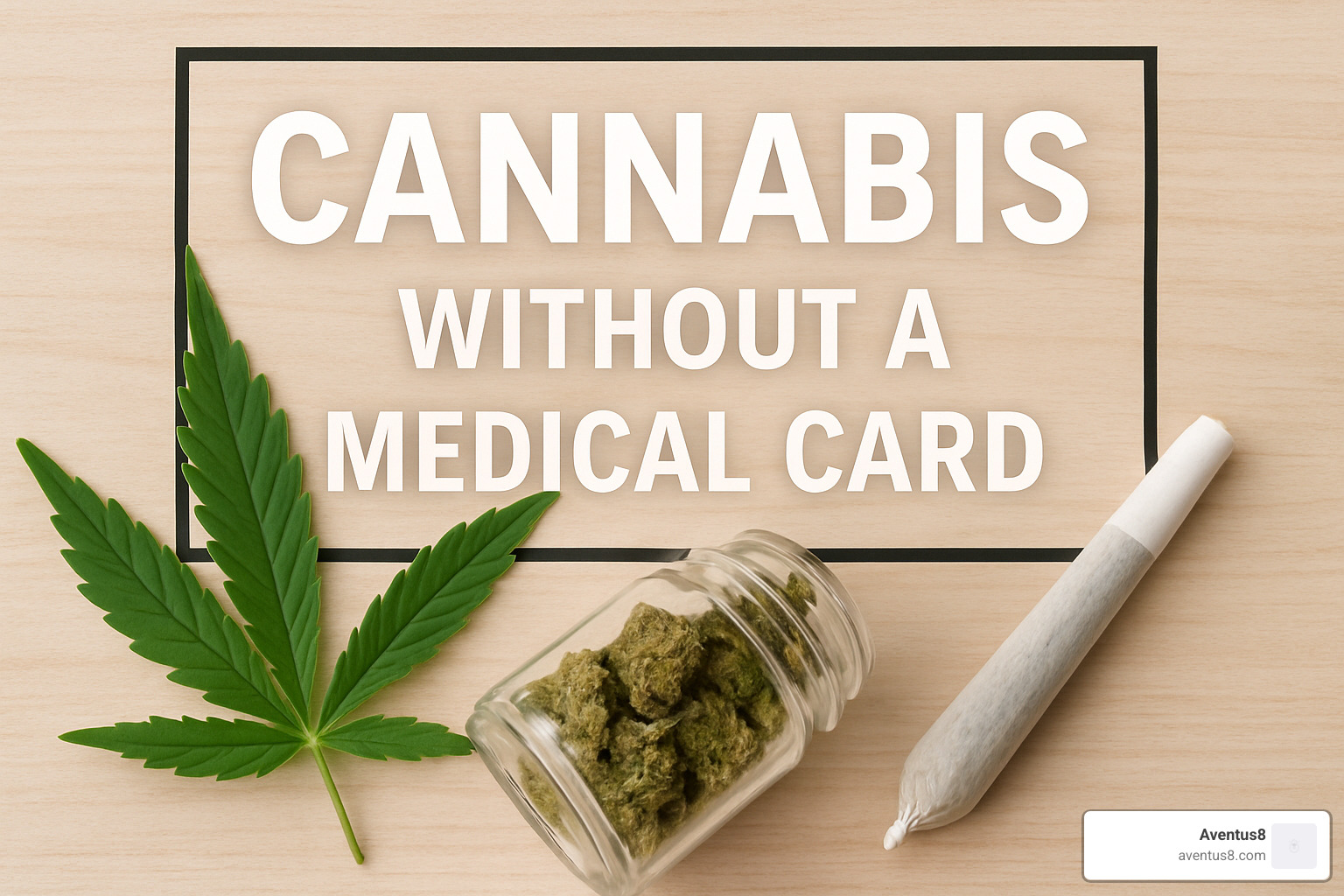
Take Arizona, for example. When you buy as a recreational user, you're paying the standard sales tax PLUS an additional 16% excise tax that medical patients don't have to worry about. That's a significant chunk of change, especially if you're a regular consumer.
The tax differences vary across states but follow a similar pattern:
| State | Medical Cannabis Tax | Recreational Cannabis Tax | Difference |
|---|---|---|---|
| Arizona | 5.6%-7.6% | Medical rate + 16% excise | ~16% more |
| California | 7.25% + $9.65/oz cultivation | 15% excise + 7.25% sales + $9.65/oz cultivation + local taxes up to 10% | Up to 25% more |
| Colorado | 2.9% sales tax | 15% excise + 15% special sales + 2.9% state sales + local taxes | ~30% more |
| Illinois | 1% pharmaceutical rate | 10-25% cannabis tax + 6.25% sales + up to 3% local | ~25-35% more |
To put this in real terms: if you're spending around $200 monthly on cannabis, going the recreational route might cost you an extra $30-70 per month. Over a year, that's potentially $360-840 more just in taxes! For some folks, the medical card pays for itself pretty quickly when you factor in these tax savings.
Product selection & pot limits side-by-side
Beyond the hit to your wallet, there are some practical differences in what and how much you can buy when using cannabis without medical card authorization.
Medical patients typically enjoy more generous purchase and possession limits. In Arizona, medical patients can stock up with 2.5 ounces every two weeks, while recreational users are limited to just 1 ounce per transaction (with concentrates capped at 5 grams). If you're someone who prefers fewer trips to the dispensary, this difference matters.
The product selection can also vary significantly. Medical dispensaries often carry a wider variety of therapeutic-focused products, including options with higher CBD content, specialized tinctures, and medical-specific topicals. These products are designed with symptom relief in mind rather than just recreational enjoyment.
Here's how the differences typically break down:
| Factor | Medical Cannabis | Recreational Cannabis |
|---|---|---|
| Purchase Limits | Typically higher (e.g., 2.5 oz/14 days in AZ) | Lower (e.g., 1 oz per transaction in AZ) |
| Potency Caps | Often higher or none | May have THC caps in some states |
| Product Selection | Wider variety, including high-CBD options | Often THC-focused with fewer medical-specific products |
| Age Requirement | 18+ with card | 21+ |
| Home Cultivation | Often more plants allowed | Typically limited (e.g., 6 plants) |
The good news is that in states with mature cannabis markets, these product selection differences are becoming less pronounced. Many dispensaries now serve both medical and recreational customers, offering similar product lines to everyone.
However, if you're looking for specific therapeutic benefits, it's worth noting that medical programs often emphasize education and proper dosing more than recreational programs do. For guidance on using cannabis safely and effectively for health concerns, check out Your Guide to Using Medical Marijuana Safely and Effectively.
Whether the convenience of cannabis without medical card outweighs the benefits of joining a medical program depends on your individual needs, consumption habits, and budget considerations.
Buying, Possessing & Traveling—Stay Compliant Without the Card
Let's face it—navigating the rules around cannabis without medical card can feel like trying to follow a recipe with half the instructions missing. But don't worry! I'll walk you through everything you need to know to stay on the right side of the law.
Finding a licensed adult-use dispensary near you
When you're looking to purchase cannabis without medical card, your first stop should always be a licensed dispensary. Think of these as the "official" stores where everything is above board.
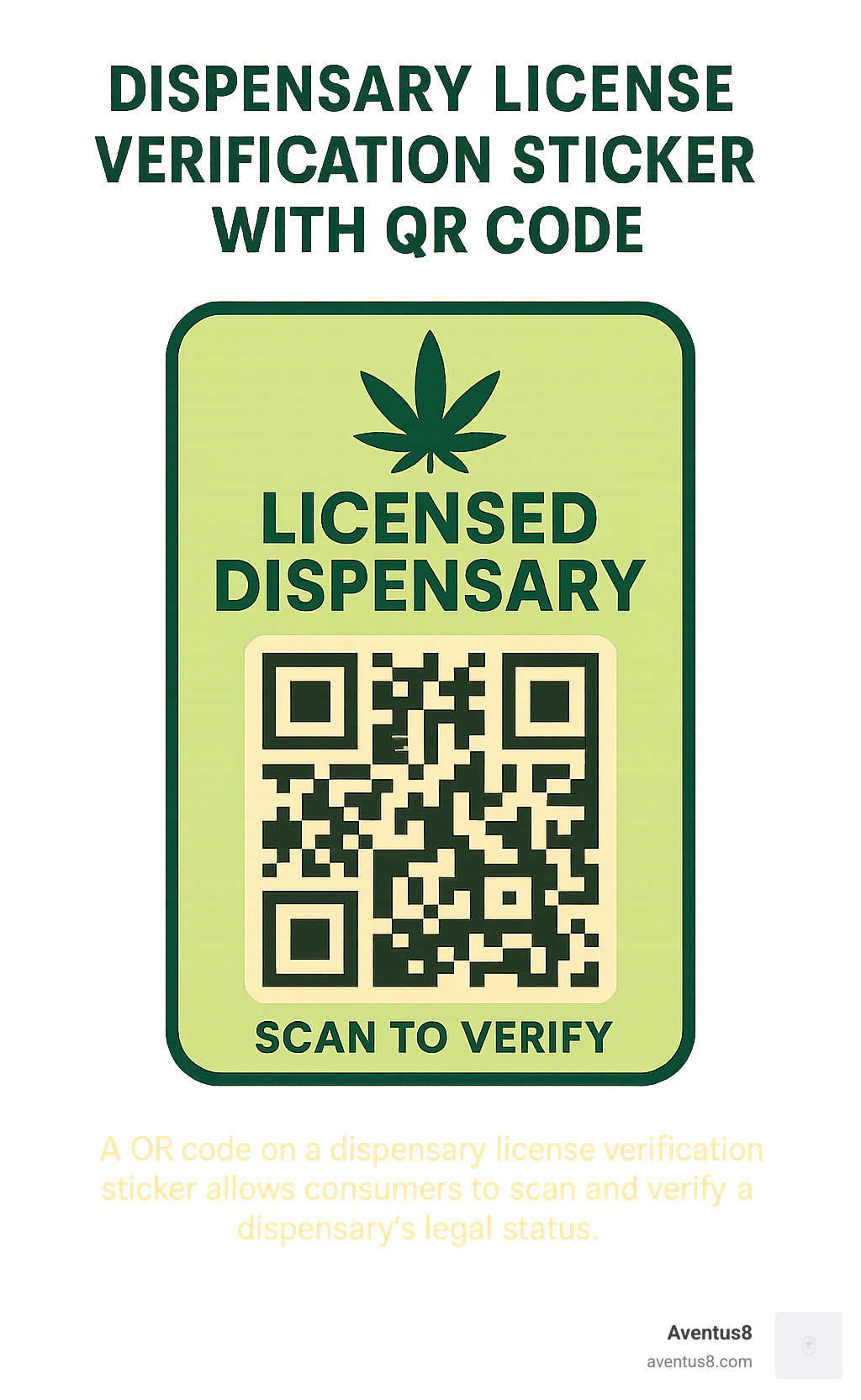
Finding a legitimate shop is easier than you might think. Most states have handy online directories through their cannabis regulatory websites where you can search for dispensaries near you. When you arrive, look for that all-important license number prominently displayed—it's like a restaurant's health department grade, but for cannabis!
Many dispensaries now feature QR codes on their products and signage that you can scan to verify testing results. Pretty neat, right? It's like being able to check a restaurant's ingredients before ordering.
When you visit without a medical card, remember to bring your government ID (you'll definitely need it!), and don't be surprised if there's a line—recreational customers often wait a bit longer than medical patients. Most places still operate as cash-only businesses due to those pesky federal banking restrictions, so stop by the ATM beforehand.
The budtenders are there to help, not judge! They can recommend products based on what you're looking for, whether it's something to help you relax after a long day or spark your creativity for a weekend project.
Home cultivation rules for non-patients
Growing your own cannabis plants at home is now legal in many states for adults without a medical card—it's like having an herb garden, but with more regulations!
Most states follow what I call the "six plant standard"—allowing adults 21+ to grow up to six plants at home. If you have multiple adults in the household, you might be able to grow more (typically maxing out at 12 plants regardless of how many adults live there).
Your cannabis garden can't be visible from the street or public areas—no showing off those beautiful plants to passersby! You'll need to keep your growing area secure, often in a locked room or enclosure. Think of it like having a wine cellar that requires a key.
If you're renting, check with your landlord first. Even in legal states, property owners can prohibit cultivation on their premises. And some cities or counties might have their own restrictions, so a quick check of local zoning rules is always smart.
Some recreational states like Illinois and New Jersey still don't allow home growing without a medical card—they're the exception rather than the rule.
Traveling with Cannabis without medical card: what's illegal everywhere
Here's where things get tricky. Despite state legalization, some activities remain firmly in the "don't do it" category due to federal law.
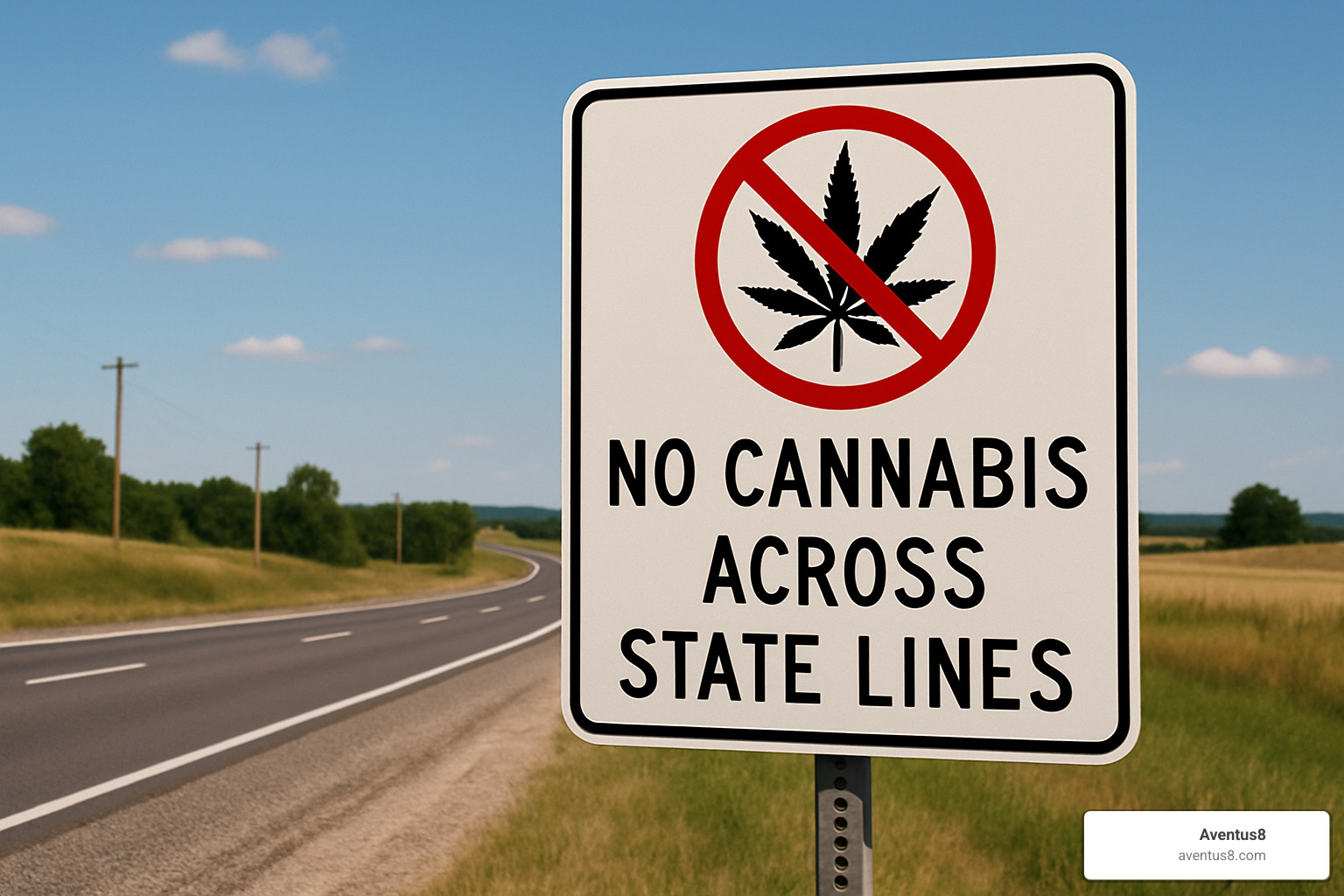
Crossing state lines with cannabis is always illegal—even between two legal states like Washington and Oregon. The moment you cross that border, you've committed a federal offense. It's like bringing a bottle of wine from California to Nevada, except with much more serious potential consequences.
Flying with cannabis is another no-go. TSA officers might not be actively searching for your stash, but if they find it during regular screening, they're required to report it to law enforcement. Those "amnesty boxes" you see at airports in legal states? They exist for a reason!
Mailing cannabis through any carrier—USPS, UPS, FedEx—is federally illegal, no matter where you're sending it. That friendly postal worker has no idea what's in your carefully wrapped package, and that's exactly how it should stay.
Federal land is always off-limits for cannabis possession or use. This includes national parks, federal buildings, military bases, and other federal properties. That gorgeous vista point in Yosemite? Not the place for your cannabis enjoyment.
Driving under the influence of cannabis is illegal everywhere, just like alcohol. The "I'm actually a better driver when I'm high" argument won't fly with law enforcement, and the penalties can be severe.
If you're traveling to a legal state, the simplest solution is to wait until you arrive at your destination to make your purchases. Many dispensaries are conveniently located near tourist areas for exactly this reason!
For more information about navigating the complex legal landscape around cannabis products, check out our guide on Delta 9 THC Legal Status and Safety Concerns.
Product Safety & Quality When You Don't Have a Card
When you're buying cannabis without medical card, you become your own quality control expert. Without the structured oversight that medical programs provide, it's up to you to ensure what you're consuming is safe and effective.
I've seen many first-time recreational customers rush their purchases without asking the right questions. Don't make that mistake! Taking a few extra minutes to examine products can make all the difference in your experience.
Spotting trustworthy labels on adult-use shelves
The label tells a story about what's inside your cannabis product. A trustworthy label is your first line of defense against poor quality or potentially harmful products.
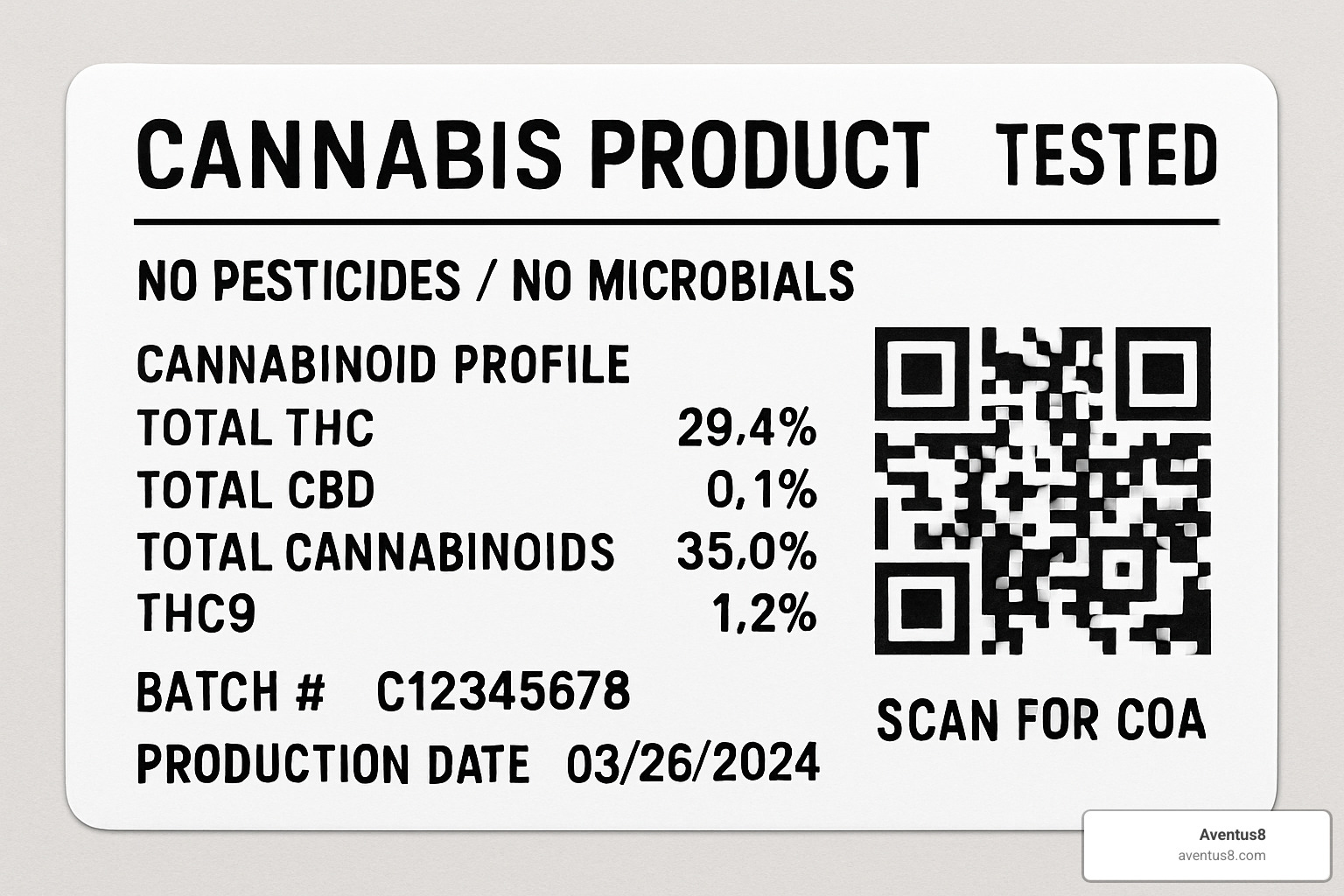
When I'm checking out a new product, I always look for these key elements on the packaging:
A detailed batch or lot number means the product can be traced back to its source if there's ever a problem. A complete cannabinoid profile shows you exactly what's in your product – not just THC, but CBD and other compounds too. The harvest date helps you gauge freshness, while testing information confirms the product has been screened for safety.
That little QR code on the package? It's actually your golden ticket to transparency. Scan it with your phone to view the Certificate of Analysis (COA) – a document showing third-party lab results for potency, pesticides, heavy metals, microbial contaminants, and residual solvents in concentrates.
Don't be shy about asking your budtender to see the COA before purchasing. Any reputable dispensary will happily show you this information – if they hesitate, that's a red flag.
Avoiding unlicensed sources—health & legal risks
I understand the temptation of cheaper prices or convenient delivery from unlicensed sources. But trust me, the risks aren't worth the few dollars you might save.
The health concerns are serious. A 2022 study published in the National Library of Medicine found alarming levels of pesticides and heavy metals in cannabis from unregulated sources. Without testing requirements, you might be inhaling harmful chemicals along with your cannabis. Products from unlicensed sources often have wildly inaccurate potency labels too – that "20% THC" flower might actually be 5% or 30%, making dosing unpredictable.
Beyond health concerns, the legal risks can follow you long after consumption. Even in states with recreational cannabis, possession of products from unlicensed sources may carry different penalties. Failed employment drug tests don't distinguish between legal and illegal sources, and many housing agreements specifically prohibit illegal substances on the property.
For those living in areas without legal access, hemp-derived products containing less than 0.3% THC provide a federally legal alternative thanks to the 2018 Farm Bill. At Aventus8, we ship lab-tested hemp-derived products nationwide without requiring a medical card. Each product comes with a verified COA, ensuring you receive safe, legal options regardless of your state's cannabis laws.
The Substance Abuse and Mental Health Services Administration (SAMHSA) helpline at 1-800-662-HELP is available 24/7 if you or someone you know is struggling with cannabis use.
Safety doesn't have to be complicated, but it does require a bit of attention. By choosing licensed dispensaries and products with proper testing, you're not just following the law – you're protecting your health and peace of mind while enjoying cannabis without medical card.
For more information about legal vaping options, check out our guide on Vaping Legally: Understanding the Legal Landscape of CBD Pens.
Frequently Asked Questions about Cannabis without Medical Card
Is it legal to buy or possess cannabis without a medical card in my state?
This is the million-dollar question, isn't it? The answer depends entirely on where you call home.
In the 24 states plus D.C., Guam, and Northern Mariana Islands with adult-use laws, the answer is a happy "yes!" If you're 21 or older, you can legally purchase and possess cannabis without medical card requirements. Just show your ID at a licensed dispensary, and you're good to go.
However, if you're in a state with only medical cannabis programs, I'm afraid possession without that medical card remains against the law. Some states have taken a middle-ground approach by decriminalizing small amounts—meaning you might face a fine rather than criminal charges if caught with a joint or two.
And then there are states with no cannabis programs at all, where possession remains fully illegal. The landscape is constantly changing though—what's illegal today might be legal next year as more states reconsider their stance.
My best advice? Take a moment to check your specific state's current laws before making any decisions. The legal terrain shifts quickly in the cannabis world!
How much can I purchase or carry as a visitor?
Good news for travelers—most adult-use states welcome visitors with the same purchase limits as residents. You'll typically be allowed:
1 ounce (28 grams) of cannabis flower, which is enough to roll quite a few joints 5-8 grams of cannabis concentrate for the dabbing enthusiasts 500-800 mg of THC in edible form—remember to start low and go slow with these!
Here's where I need to add a friendly word of caution: while you can legally buy these amounts, you'll want to enjoy them before heading home. Taking cannabis across state lines remains federally illegal, even between two legal states. Some states also have lower possession limits for visitors than residents, so it's worth doing a quick check of your destination's rules before your trip.
Can I grow my own plants without a medical recommendation?
Home growing without a medical card is a bit like state tax laws—wonderfully inconsistent across the country.
In cannabis-friendly states like Colorado, California, and Oregon, adults 21 and over can typically grow up to 6 plants per person, though there are usually household limits regardless of how many adults live there. It's like having a little garden of joy!
Other states take a stricter approach. Illinois and Washington, despite having legal recreational cannabis, still prohibit home growing without a medical card. And in medical-only states, cultivation without that card remains firmly in illegal territory.
If you're lucky enough to live somewhere that allows home cultivation, you'll need to follow some common-sense rules: keep your plants out of public view, grow in a secure space that can be locked, stay within the plant limits, check local zoning rules, and if you're renting, get your landlord's permission first.
Home growing can be incredibly rewarding, but it does require some research to make sure you're staying on the right side of the law. The effort is worth it though—there's something special about enjoying the fruits of your own garden!
Conclusion
Navigating cannabis without medical card feels a bit like learning a new language – challenging at first, but totally doable once you understand the basics. As more states accept adult-use legalization, the landscape continues to evolve, opening doors for many adults while still requiring careful attention to local rules.
Throughout this guide, we've covered a lot of ground together. Knowing your state's specific laws is absolutely crucial – what's perfectly legal in Colorado might land you in hot water in Texas. The patchwork of regulations across America means doing your homework before purchasing or possessing cannabis is time well spent.
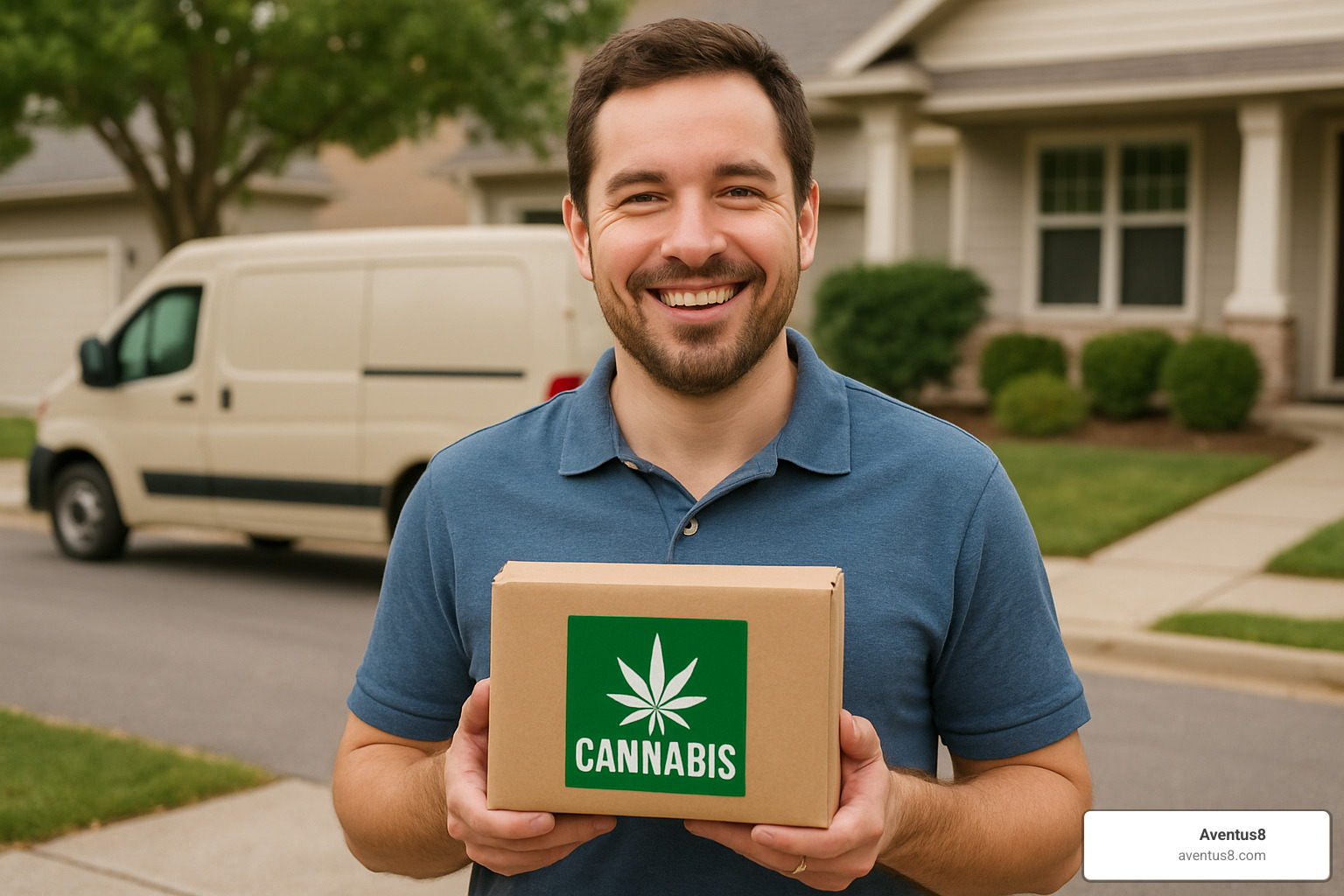
Always shop from licensed dispensaries – this isn't just about following the law, it's about your health and safety too. Licensed shops provide products that have been tested for contaminants and accurately labeled for potency. Those little details matter tremendously when you're putting something into your body.
Be mindful of purchase and possession limits in your area. Most adult-use states allow an ounce of flower, but concentrate and edible limits vary widely. And please, never transport cannabis across state lines – even between two legal states, this remains a federal offense that can carry serious consequences.
Product safety deserves your attention whether you have a medical card or not. Look for clear labeling, batch numbers, and verified lab testing results. When in doubt, ask to see the Certificate of Analysis – reputable dispensaries are happy to share this information with customers who care about quality.
For those living in areas without recreational access, or folks who simply prefer the convenience of home delivery, Aventus8 offers federally compliant hemp-derived products shipped directly to your door. We provide free shipping on orders over $75 within the U.S., plus a free gift with qualifying purchases. All our products come with certificates of analysis from third-party labs, giving you peace of mind without requiring a medical card.
The cannabis world continues to change rapidly, with new states legalizing each year and regulations evolving even in established markets. Staying informed is your best strategy for navigating this complex terrain safely and legally. We're committed to helping you do exactly that.
Want to learn more about buying cannabis online the right way? Check out our detailed guide on From Screen to Green: A Guide to Buying Cannabis Online in the USA.
